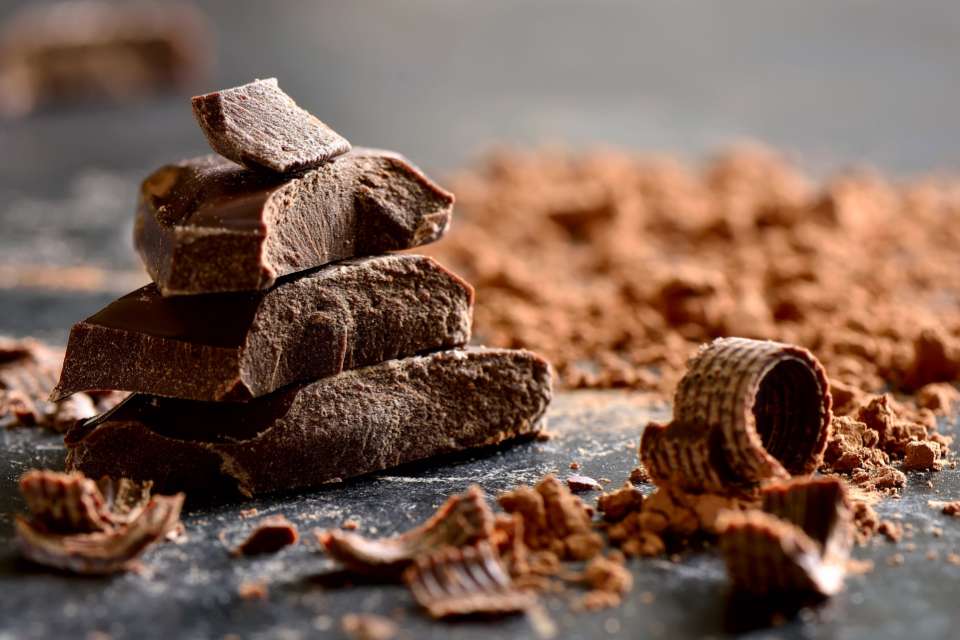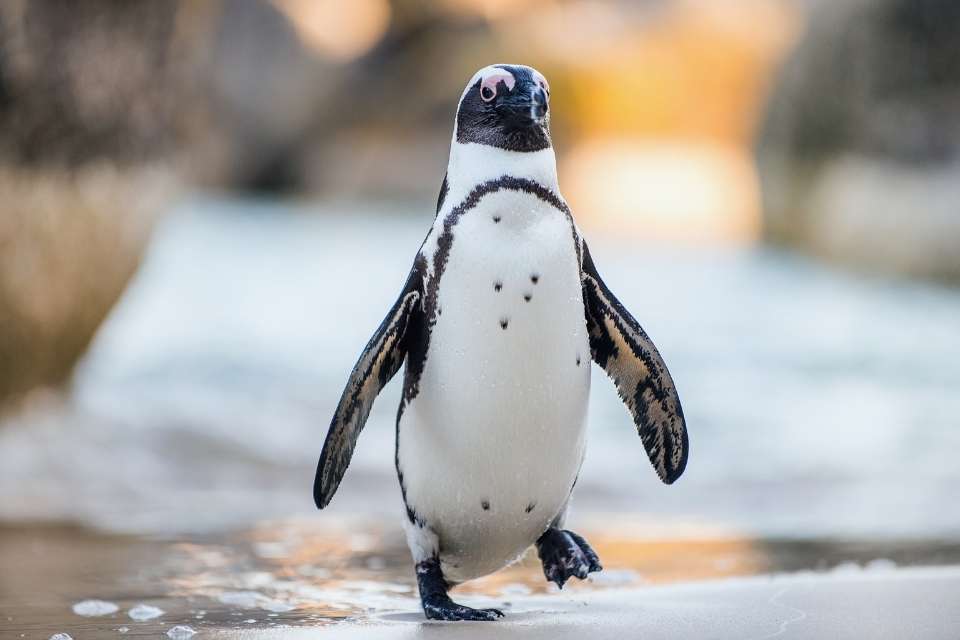When it comes to penguins, their black and white feathers make them both adorable and fascinating creatures. These flightless birds have a unique diet consisting mainly of sea creatures, which they consume in large quantities. However, if you’re wondering whether penguins can eat chocolate, the answer is a resounding no.
Penguins do not have the ability to digest chocolate effectively, and consuming it can lead to severe health risks. In fact, chocolate can be harmful to penguins and may result in adverse effects such as seizures, diarrhea, and even death.
Unlike humans, penguins lack taste receptors for sweet and bitter flavors and can only taste salty and sour. Therefore, chocolate, being a sweet treat, does not provide any nutritional value for penguins and should never be given to them under any circumstances.
Let’s delve deeper into why penguins should avoid chocolate, explore their natural diet, and learn about other foods to avoid when feeding these incredible birds.
Key Takeaways:
- Penguins should never be fed chocolate as it can lead to health risks such as seizures, diarrhea, and even death.
- Chocolate lacks nutritional value for penguins as they cannot taste sweet or bitter flavors.
- Penguins have a specific diet that primarily consists of seafood like fishes, crustaceans, cephalopods, and amphipods.
- Avoid feeding penguins other harmful foods such as avocado, fruit pits, apple seeds, onions, garlic, and plastic.
- Providing penguins with a suitable diet that aligns with their natural food choices is crucial for their well-being and health.
Why Penguins Should Avoid Chocolate
When it comes to their diet, penguins have specific nutritional needs. Unfortunately, chocolate is not a suitable food for these adorable birds.
In fact, it can have serious health risks and toxic effects on penguins, making it important to keep chocolate far away from their reach.
The biggest concern with chocolate consumption in penguins is the presence of theobromine and caffeine. These compounds, which give chocolate its delightful taste to humans, are difficult for penguins to digest.
Theobromine and caffeine can have detrimental effects on penguins’ central nervous system and kidneys, leading to a range of health problems.
One of the most concerning risks is the potential for seizures. Chocolate has been known to trigger seizures in penguins, causing them great distress and discomfort. Additionally, chocolate can also result in diarrhea, which can lead to dehydration in these birds.
But the hazards don’t stop there. The impact of chocolate on penguins’ heart rate is also a cause for concern. Consumption of chocolate can increase the heart rate of penguins, putting unnecessary stress on their cardiovascular system.
Another issue that can arise is hyperactivity. Yes, penguins can experience hyperactivity from consuming chocolate. This can lead to increased motor activity, making it harder for these flightless birds to maintain their balance and coordination.
Perhaps the most serious consequence of chocolate consumption for penguins is the potential for tremors and seizures, which can ultimately be fatal. Signs of chocolate toxicity typically appear within a few hours of ingestion, necessitating immediate veterinary attention.
“We strongly advise keeping penguins away from chocolate, as it can have fatal consequences for their health. The risks of seizures, diarrhea, increased heart rate, hyperactivity, tremors, and even death make chocolate completely unsuitable for these delightful birds.”
In order to ensure the well-being of penguins, it is crucial to keep them away from chocolate at all times. Instead, focus on providing them with a diet that aligns with their natural food choices, such as fishes, crustaceans, cephalopods, and amphipods.
Penguins rely on their natural foods to meet their nutritional needs, and chocolate simply cannot offer them any benefits. Let’s prioritize the health and safety of these fascinating creatures by keeping chocolate out of their reach.
What Penguins Should Eat Instead
In order to maintain their health and well-being, penguins should follow a suitable diet that aligns with their natural food choices. These adorable flightless birds thrive on various sea creatures, which provide them with essential nutrients and keep their bodies in optimal condition.
Let’s explore the recommended food options for penguins:
Penguins’ Natural Food Choices
- Fishes: Fish make up a significant part of penguins’ diet. Different species of penguins prefer different types of fish, such as anchovies, sardines, and herring. Fishes are an excellent source of protein and omega-3 fatty acids, which are crucial for penguins’ overall health.
- Crustaceans: Penguins also enjoy feasting on crustaceans like krill and crabs. These small marine creatures provide penguins with valuable nutrients like vitamins, minerals, and antioxidants.
- Cephalopods: Squids are a favorite food choice for many penguin species. These soft-bodied mollusks are rich in protein and contain essential minerals like iron and calcium.
- Amphipods: Amphipods, small shrimp-like crustaceans, are another important component of a penguin’s diet. They offer valuable nutritional benefits, including high protein content and omega-3 fatty acids.
The variety in penguins’ natural food choices helps to reduce competition for resources among different penguin species, ensuring a balanced ecosystem in their habitats.
Importance of Seafood in Penguins’ Diet
Seafood forms a crucial part of penguins’ diet due to its nutritional value. It provides them with the necessary energy to swim, hunt, and breed.
The consumption of seafood like squids, krill, crabs, and fish ensures penguins receive essential proteins, fats, vitamins, and minerals they need for growth, reproduction, and overall well-being.
Feeding penguins a diet that mirrors their natural food choices is vital for their health and happiness. It is essential to prioritize their nutritional needs and avoid offering them human treats like chocolate.
By providing penguins with a suitable diet rich in fishes and seafood, we can help them thrive and maintain a healthy population in their natural habitats.
Other Foods to Avoid Feeding Penguins
In addition to chocolate, there are several other foods that can be harmful to penguins. It is important to exercise caution when feeding penguins to ensure their health and well-being. Here are some foods that should be avoided when feeding penguins:
- Avocado: Avocado contains a substance called persin, which can be toxic to penguins. It can cause heart damage and respiratory problems in these birds. Avoid feeding penguins any avocado.
- Fruit Pits and Apple Seeds: Fruit pits and apple seeds can be toxic to penguins if ingested. These parts of the fruit contain compounds that can harm their digestive system and overall health. Remove all pits and seeds before offering fruits to penguins.
- Onions and Garlic: Onions and garlic belong to the Allium family, which can irritate the digestive system of penguins. These foods can cause discomfort and potentially lead to digestive issues. Avoid including onions and garlic in the diet of penguins.
- Plastic: Ingesting plastic can have severe negative effects on penguins. Plastic is indigestible and can cause blockages in their digestive system. This can lead to serious health problems and even death. Ensure penguins are not exposed to any plastic items.
It is essential to prioritize the well-being of penguins by providing them with a suitable diet. Avoid offering them harmful foods such as avocado, fruit pits, apple seeds, onions, garlic, and plastic.
By doing so, we can ensure these beautiful birds stay healthy and thrive in their natural environments.
Conclusion
In conclusion, it is clear that chocolate and penguins are not a compatible mix. Chocolate consumption can have severe consequences for the health of penguins, including seizures, diarrhea, increased heart rate, hyperactivity, tremors, and even death.
Penguins lack the taste receptors to appreciate the sweet or bitter flavors of chocolate, making it a pointless addition to their diet.
Instead of chocolate, penguins should be fed a diet that aligns with their natural food choices. Seafood, such as fishes, krill, crabs, and squids, provides the essential nutrition penguins need to thrive.
It is crucial to avoid feeding penguins other harmful foods like avocado, fruit pits, apple seeds, onions, garlic, and plastic, which can also have adverse effects on their health.
When it comes to feeding penguins, it is important to follow the guidelines for their well-being. By providing them with a suitable diet that reflects their natural food choices, we can ensure their health and avoid any potential risks.
Let’s keep penguins healthy and happy by respecting their specialized diet and steering clear of incompatible foods like chocolate.
FAQ
Can penguins eat chocolate?
No, penguins should not eat chocolate. Chocolate can be harmful to penguins and may result in health risks such as seizures, diarrhea, and even death. Penguins lack the taste receptors for sweet and bitter flavors and can only taste salty and sour.
Chocolate does not have any nutritional value for penguins and should not be given to them under any circumstances.
Why should penguins avoid chocolate?
Penguins should avoid chocolate because it contains theobromine and caffeine, which can be toxic to penguins. These substances can affect the central nervous system and kidneys of penguins, leading to increased motor activity, dehydration, seizures, and even death. Signs of chocolate toxicity usually occur within a few hours of ingestion.
Penguins should avoid chocolate completely to prevent these health risks.
What should penguins eat instead?
Penguins should be fed a diet that aligns with their natural food choices, which include fishes, crustaceans, cephalopods, and amphipods.
The consumption of seafood like squids, krill, crabs, and fish is essential for penguins’ nutrition and overall health. Penguins should be provided with a suitable diet that reflects their natural food choices rather than human treats like chocolate.
What other foods should be avoided when feeding penguins?
In addition to chocolate, penguins should avoid other foods such as avocado, fruit pits, apple seeds, onions, garlic, and plastic. Avocado contains a substance called persin that can cause heart damage and respiratory problems in penguins.
Fruit pits and apple seeds can be toxic to their health, while onions and garlic can irritate their digestive system. Ingesting plastic can also lead to serious health issues for penguins, such as digestion problems.


